All first-year doctoral students receive departmental financial support through Teaching Assistantships or Fellowships. Assistantships provide a nine-month stipend as well as a tuition waiver and the option to purchase subsidized medical and dental insurance.
The Graduate School provides a Conference Participation Award (previously known as the Doctoral Student Travel Award) to enrolled doctoral students to present their research at a conference once during their career. In addition, the Department grants one travel award each semester in recognition of an outstanding graduate seminar for a doctoral student to attend a conference.
Throughout the rest of their training, MCB Ph.D. students are typically supported through either Teaching Assistantships, Research Assistantships, or Fellowships. Please see the Guidelines for the hiring and assignment of MCB Teaching Assistants (TAs)
Assistantships are not guaranteed for traditional Master’s students and Master’s students in the Professional programs do not receive financial support.
Summer support is guaranteed for first-year PhD students through a departmental stipend. For continuing Ph.D. students engaged in on-going research projects summer support is provided through laboratory funds and/or the fellowships described below:
Claire M. Berg Graduate Fellowship in Genetics
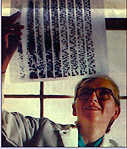 was established by the friends and family of Dr. Berg to provide a summer fellowship, in honor of Dr. Berg, to a female graduate student in the Genetics Area of Concentration who shows exceptional promise in science as she progresses to the doctoral degree. Requirements are for a female graduate student in the field of study of genetics who has completed most course work requirements, made progress in her research, and been an active member in the University, local, regional or national scientific community. Claire was born in 1937 in Mt. Vernon NY. She received her BS in Plant Breeding at Cornell University in 1959, her MS in Genetics/Botany in 1962 from the Univ. Chicago, and her Ph.D. in Genetics/Botany in 1966 from Columbia University. After postdoctoral training at the Hammersmith Hospital in London, and Univ. Geneva in Switzerland, she moved to UConn where she eventually became a Full Professor. Claire was an expert in the genetics and regulation of the isoleucine-valine gene cluster in enteric bacteria, in transposon biology, and in developing systems for rapid DNA sequencing based on her transposon work and was a fan of the nascent human genome project at the time of its inception. She published more than 70 manuscripts covering 35 years of science. Her contributions to the broader community of microbial genetics were many and varied and included several stints on the Editorial Boards of Applied and Environmental Microbiology and J. Bacteriology as well as several appointments as a panelist for NSF, HHMI, DOE, NIH, and the American Cancer Society. She served on several professional committees for the American Society for Microbiology, the Genetics Society of America and the American Association for the Advancement of Science to which she was elected Fellow in 1995. Claire was a pioneer in establishing the framework for the advancement of women in science, both locally and in national venues. She passed away in 1997 after a struggle with pancreatic cancer.WANG, G, BLAKESLY, RW, BERG, DE and Berg CM 1993. pDUAL: a transposon-based cosmid cloning vector for generating nested deletions and DNA sequencing templates in vivo. Proc Natl Acad Sci U S A. 90:7874-8.SHAW, KJ, BERG, CM.1979. Escherichia coli K-12 auxotrophs induced by insertion of the transposable element Tn5. Genetics.;92:741-7.
was established by the friends and family of Dr. Berg to provide a summer fellowship, in honor of Dr. Berg, to a female graduate student in the Genetics Area of Concentration who shows exceptional promise in science as she progresses to the doctoral degree. Requirements are for a female graduate student in the field of study of genetics who has completed most course work requirements, made progress in her research, and been an active member in the University, local, regional or national scientific community. Claire was born in 1937 in Mt. Vernon NY. She received her BS in Plant Breeding at Cornell University in 1959, her MS in Genetics/Botany in 1962 from the Univ. Chicago, and her Ph.D. in Genetics/Botany in 1966 from Columbia University. After postdoctoral training at the Hammersmith Hospital in London, and Univ. Geneva in Switzerland, she moved to UConn where she eventually became a Full Professor. Claire was an expert in the genetics and regulation of the isoleucine-valine gene cluster in enteric bacteria, in transposon biology, and in developing systems for rapid DNA sequencing based on her transposon work and was a fan of the nascent human genome project at the time of its inception. She published more than 70 manuscripts covering 35 years of science. Her contributions to the broader community of microbial genetics were many and varied and included several stints on the Editorial Boards of Applied and Environmental Microbiology and J. Bacteriology as well as several appointments as a panelist for NSF, HHMI, DOE, NIH, and the American Cancer Society. She served on several professional committees for the American Society for Microbiology, the Genetics Society of America and the American Association for the Advancement of Science to which she was elected Fellow in 1995. Claire was a pioneer in establishing the framework for the advancement of women in science, both locally and in national venues. She passed away in 1997 after a struggle with pancreatic cancer.WANG, G, BLAKESLY, RW, BERG, DE and Berg CM 1993. pDUAL: a transposon-based cosmid cloning vector for generating nested deletions and DNA sequencing templates in vivo. Proc Natl Acad Sci U S A. 90:7874-8.SHAW, KJ, BERG, CM.1979. Escherichia coli K-12 auxotrophs induced by insertion of the transposable element Tn5. Genetics.;92:741-7.
Biohaven Pharmaceuticals Summer Fellowship
The Biohaven Summer Fellowship was established to provide support to a MCB PhD student conducting dissertation research in the Department of Molecular and Cell Biology and demonstrated academic promise. Biohaven Pharmaceuticals is a clinical-stage biopharmaceutical company with proven leadership in industry and academic settings. Their portfolio is comprised of innovative, late-stage product candidates targeting neurological and neuropsychiatric diseases, including rare disorders.
research in the Department of Molecular and Cell Biology and demonstrated academic promise. Biohaven Pharmaceuticals is a clinical-stage biopharmaceutical company with proven leadership in industry and academic settings. Their portfolio is comprised of innovative, late-stage product candidates targeting neurological and neuropsychiatric diseases, including rare disorders.
Arthur M. Chovnick Fellowship in Genetics
The Arthur Chovnick Fellowship in Genetics was established by friends and family 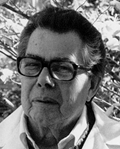 of Arthur on the occasion of his retirement. Its purpose is to provide summer support for a graduate student in the Genetics Area of Concentration who shows exceptional promise. Requirements are for a graduate student in the field of study of genetics who has completed most course work requirements, made progress in their research, and been an active member in the University, local, regional or national scientific community. Arthur Chovnick was born in 1927 in New York City. He received an AB in Chemistry in 1949, and an MS in Zoology/Genetics in 1950, from Indiana Univ., and his Ph.D. in Genetics from Ohio State Univ. in 1953. He then served as an Instructor at UConn, as the Assistant Director and then Director of the Biological Laboratories at Cold Spring Harbor from 1959-1962 and became a Professor at UConn in 1962. He served for many years on the Editorial Review Boards of Genetics, Genetical Research, and Fundamental Genetics, and was a member of the Genetics Study Section of NIH. During his career of over 41 years, he published over 90 manuscripts. He is known for his contributions to understanding the structure and function of genes in higher organisms. His research has focused on the fruit fly, which has the same cellular structure that humans have. He is also recognized for his work involving molecular genetics, purine metabolism, transposable elements, and chromosomal position effects. Dr. Chovnick holds the record for the longest-running NIH grant in the history of that agency running from the late early 50s until his retirement in 1994.S. B. DANIELS, K. R. PETERSON, L. D. STRAUSBAUGH, M. G. KIDWELL, A. CHOVNICK . 1990. Evidence for Horizontal Transmission of the P Transposable Element Between Drosophila Species. Genetics 124: 339-355.A. CHOVNICK, W. GELBART, M. McCARRAN. 1977. Organization of the Rosy locus in Drosophila. Cell 11:1-10.
of Arthur on the occasion of his retirement. Its purpose is to provide summer support for a graduate student in the Genetics Area of Concentration who shows exceptional promise. Requirements are for a graduate student in the field of study of genetics who has completed most course work requirements, made progress in their research, and been an active member in the University, local, regional or national scientific community. Arthur Chovnick was born in 1927 in New York City. He received an AB in Chemistry in 1949, and an MS in Zoology/Genetics in 1950, from Indiana Univ., and his Ph.D. in Genetics from Ohio State Univ. in 1953. He then served as an Instructor at UConn, as the Assistant Director and then Director of the Biological Laboratories at Cold Spring Harbor from 1959-1962 and became a Professor at UConn in 1962. He served for many years on the Editorial Review Boards of Genetics, Genetical Research, and Fundamental Genetics, and was a member of the Genetics Study Section of NIH. During his career of over 41 years, he published over 90 manuscripts. He is known for his contributions to understanding the structure and function of genes in higher organisms. His research has focused on the fruit fly, which has the same cellular structure that humans have. He is also recognized for his work involving molecular genetics, purine metabolism, transposable elements, and chromosomal position effects. Dr. Chovnick holds the record for the longest-running NIH grant in the history of that agency running from the late early 50s until his retirement in 1994.S. B. DANIELS, K. R. PETERSON, L. D. STRAUSBAUGH, M. G. KIDWELL, A. CHOVNICK . 1990. Evidence for Horizontal Transmission of the P Transposable Element Between Drosophila Species. Genetics 124: 339-355.A. CHOVNICK, W. GELBART, M. McCARRAN. 1977. Organization of the Rosy locus in Drosophila. Cell 11:1-10.
Richard C. Crain, Jr. Memorial Fellowship
The Crain family established a Memorial Fellowship in Dr. Richard C. Crain’s memory 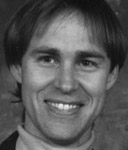 with the aim of supporting graduate students in the Biochemistry Area of Concentration who demonstrate exceptional promise. Requirements are for a Ph.D. student in Molecular and Cell Biology who has completed three years of graduate studies with a minimum GPA of 3.2, demonstrated academic promise and has established research in the field of biochemistry. Richard C. Crain graduated from Pittsford High School in western New York state in 1969. A record-setting distance runner, he was named the top academic athlete of his graduating class. After receiving his undergraduate degree in chemistry at Dartmouth, he earned a doctoral degree in biochemistry at the University of Rochester and went on to Cornell for post-doctoral work. While at Rochester and Cornell, he gained an international reputation for his work with phospholipid transfer proteins that catalyze the movement of cell membrane components between membranes. Rich joined the faculty of the Department of Molecular and Cell Biology at UConn in 1980 and moved through the ranks to the position of Professor by 1992. Rich’s career was distinguished by the scope of his expertise and by his willingness to contribute to a range of other research endeavors both at UCONN and beyond. Rich’s training began in the field of lipid metabolism in the liver, continued with studies on plant signal transduction, and moved to the biochemistry of inflammation and autoimmune disease. He served on the Editorial Board of Plant Physiology and was active in the American Society of Plant Physiologists. Although his career was cut short, he published more than 50 research papers. Rich died suddenly of a heart attack at age 47, after 18 years at UConn. He is survived by his wife, Elizabeth Crain, whom he met in high school, and by his two sons, Cullen and Jason. YOUNGSOOK LEE, Y. B. CHOI, S. SUH, J. LEE, S. M. ASSMANN, C. O. JOE, J. F. KELLEHER, and R. C. CRAIN. 1996. Abscisic Acid-induced Phosphoinositide Turnover in Guard Cell Protoplasts of Vicia faba. Plant Physiol. 110:987-996.M. J. MORSE, RICHARD C. CRAIN, AND RUTH L. SATTER. 1987. Light-stimulated inositolphospholipid turnover in Samanea saman leaf pulvini. Proc. Natl. Acad. Sci. USA 84:7075-7078.
with the aim of supporting graduate students in the Biochemistry Area of Concentration who demonstrate exceptional promise. Requirements are for a Ph.D. student in Molecular and Cell Biology who has completed three years of graduate studies with a minimum GPA of 3.2, demonstrated academic promise and has established research in the field of biochemistry. Richard C. Crain graduated from Pittsford High School in western New York state in 1969. A record-setting distance runner, he was named the top academic athlete of his graduating class. After receiving his undergraduate degree in chemistry at Dartmouth, he earned a doctoral degree in biochemistry at the University of Rochester and went on to Cornell for post-doctoral work. While at Rochester and Cornell, he gained an international reputation for his work with phospholipid transfer proteins that catalyze the movement of cell membrane components between membranes. Rich joined the faculty of the Department of Molecular and Cell Biology at UConn in 1980 and moved through the ranks to the position of Professor by 1992. Rich’s career was distinguished by the scope of his expertise and by his willingness to contribute to a range of other research endeavors both at UCONN and beyond. Rich’s training began in the field of lipid metabolism in the liver, continued with studies on plant signal transduction, and moved to the biochemistry of inflammation and autoimmune disease. He served on the Editorial Board of Plant Physiology and was active in the American Society of Plant Physiologists. Although his career was cut short, he published more than 50 research papers. Rich died suddenly of a heart attack at age 47, after 18 years at UConn. He is survived by his wife, Elizabeth Crain, whom he met in high school, and by his two sons, Cullen and Jason. YOUNGSOOK LEE, Y. B. CHOI, S. SUH, J. LEE, S. M. ASSMANN, C. O. JOE, J. F. KELLEHER, and R. C. CRAIN. 1996. Abscisic Acid-induced Phosphoinositide Turnover in Guard Cell Protoplasts of Vicia faba. Plant Physiol. 110:987-996.M. J. MORSE, RICHARD C. CRAIN, AND RUTH L. SATTER. 1987. Light-stimulated inositolphospholipid turnover in Samanea saman leaf pulvini. Proc. Natl. Acad. Sci. USA 84:7075-7078.
Cross-Disciplinary Fellowship in MCB and Pharmaceutical Sciences
The Cross-Disciplinary Summer Fellowship was established as a joint fellowship 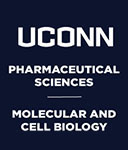 and is awarded to a Ph.D. student conducting dissertation research in either Pharmaceutical Sciences in the School of Pharmacy, or in the Department of Molecular and Cell Biology in CLAS. The student must have passed the general exam, demonstrated scientific promise, and contributed to the fundamental understanding of biological systems as evidenced by a record of publications and presentations. Priority will be given to students who are actively engaged in work that combines the interests of both departments.
and is awarded to a Ph.D. student conducting dissertation research in either Pharmaceutical Sciences in the School of Pharmacy, or in the Department of Molecular and Cell Biology in CLAS. The student must have passed the general exam, demonstrated scientific promise, and contributed to the fundamental understanding of biological systems as evidenced by a record of publications and presentations. Priority will be given to students who are actively engaged in work that combines the interests of both departments.
Dr. Edward A. Khairallah and Dr. Lamia H. Khairallah Fellowship
This fund is dedicated to the financial support of graduate students who are pursuing a degree with a concentration in 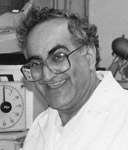 Biochemistry, Cell Biology or Toxicology, and the continuing education of faculty and student colleagues via the ongoing “Khairallah Seminar Series.” Requirements are for a PhD student in Pharmacy or Molecular & Cell Biology who is producing promising research beyond the second year of study in the fields of Biochemistry, Cell Biology, or Toxicology. Preference will be given to candidates who best demonstrate the interests and talents of the late Drs. Edward A. and Lamia H. Khairallah through integration of the above disciplines in their dissertation research. The Fund honors the enduring contributions that Drs. Edward A. and Lamia H. Khairallah made during their productive and influential careers.
Biochemistry, Cell Biology or Toxicology, and the continuing education of faculty and student colleagues via the ongoing “Khairallah Seminar Series.” Requirements are for a PhD student in Pharmacy or Molecular & Cell Biology who is producing promising research beyond the second year of study in the fields of Biochemistry, Cell Biology, or Toxicology. Preference will be given to candidates who best demonstrate the interests and talents of the late Drs. Edward A. and Lamia H. Khairallah through integration of the above disciplines in their dissertation research. The Fund honors the enduring contributions that Drs. Edward A. and Lamia H. Khairallah made during their productive and influential careers.
Dr. Edward Khairallah was born in Beirut, Lebanon in 1936, Dr. Khairallah began his academic career at the American University of Beirut where he earned his undergraduate degree. He moved to Harvard University where he earned a Master’s degree, and then to the Massachusetts Institute of Technology where he was awarded his Ph.D. in 1964. Dr. Khairallah did a postdoctoral fellowship with Henry Pitot at the McCardle Cancer Research Institute at the University of Wisconsin and arrived at the University of Connecticut in 1967 as an Assistant Professor. During his years at UCONN, he was a very popular teacher in the biochemistry course sequence, an internationally recognized scientist in the areas of protein biosynthesis and degradation, and mechanisms of hepatotoxicity. He was a beloved mentor to his students and a constant advocate and supporter of his faculty colleagues. His corpus or work included more than 80 publications and over 20 books and monographs over 31 years of science. Dr. Khairallah was recognized with honors and distinctions throughout his career. He was an Adnelot Fellow at Harvard, a Fellow of the Japanese Biochemical Society, the winner of the Frank O. Blood Award from the Society of Toxicology, and a member of the
Connecticut Academy of Arts and Sciences, to name but a few of the honors given to Dr. Khairallah. His passing in 1996 continues to be felt in the Department of Molecular and Cell Biology, where he made so many significant contributions to the scientific and educational programs.
ODESSEY, E. A. KHAIRALLAH, and A. L. GOLDBERG. 1974. Origin and Possible Significance of Alanine Production by Skeletal Muscle. J. Biol. Chem. 249:7623-7629
BOULARES, A.H., C. GIARDINA, MS INAN, EA KHAIRALLAH, S.D. COHEN. 2000, Acetaminophen inhibits NF-kappaB activation by interfering with the oxidant signal in murine Hepa 1-6 cells.Toxicol Sci. 55:370-5.
Dr. Lamia Khairallah received her master’s degree at the American University of Beirut and did her doctoral training at Boston University.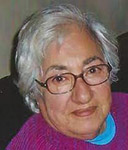 She held postdoctoral positions with Dr. Henry Pitot at the McArdle Cancer Research Institute at the University of Wisconsin and with Dr. Mark Tourtellotte in the Department of Pathobiology at the University of Connecticut. She held various academic research positions at the University of Wisconsin in Madison and the University of Connecticut in Storrs. The highlight of her career was her 27 years in the Electron Microscopy Lab in the Department of Physiology and Neurobiology at the University of Connecticut. Her expertise in histology, cytology, and electron microscopy was the driving force behind an impressive list of original research publications across a diversity of biological systems.
She held postdoctoral positions with Dr. Henry Pitot at the McArdle Cancer Research Institute at the University of Wisconsin and with Dr. Mark Tourtellotte in the Department of Pathobiology at the University of Connecticut. She held various academic research positions at the University of Wisconsin in Madison and the University of Connecticut in Storrs. The highlight of her career was her 27 years in the Electron Microscopy Lab in the Department of Physiology and Neurobiology at the University of Connecticut. Her expertise in histology, cytology, and electron microscopy was the driving force behind an impressive list of original research publications across a diversity of biological systems.
Jean Lucas-Lenard Summer Fellowship in Biochemistry
Jean Lucas-Lenard and her husband John established the Special Summer 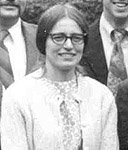 Fellowship to support students in the biochemistry Area of Concentration who showed exceptional promise in biochemical research. Requirements are for a graduate student actively pursuing research in gene expression, protein secretion, protein folding or membrane receptors and demonstrated academic promise.
Fellowship to support students in the biochemistry Area of Concentration who showed exceptional promise in biochemical research. Requirements are for a graduate student actively pursuing research in gene expression, protein secretion, protein folding or membrane receptors and demonstrated academic promise.
Jean was born in Bridgeport, CT and received her BA from Bryn Mawr College and Ph.D. from Yale University. After receiving her Ph.D. in 1963, she accepted postdoctoral positions at Institute de Biologie Physico-chemique in Paris and at the Rockefeller Univ. in NY where she worked with Fritz Lipmann (who received the Nobel Prize for Physiology and Medicine in 1953 for work on protein synthesis). She became an Assistant Professor at Rockefeller in 1968 before coming to UConn as an Associate Professor in 1970. Jean retired and became a Professor Emerita in 1995 after a long and productive career spanning 28 years and 57 publications. Jean served as a member of the Editorial Board of Biochemistry and the New England Press and served on advisory panels for the NIH and the American Heart Association. Her research interests included the genes involved in shutting down host translation and transcription during infection with vesicular stomatitis virus, the effects of cannabinoids on the adenylate cyclase/cAMP signal transduction pathway in Chinese hamster ovary cells that were transfected with the human cannabinoid receptor gene. She will be especially remembered for her famous course on the Biosynthesis of Nucleic Acids and Proteins that served an entire generation of graduate students from the Department of Molecular and Cell Biology and others. Jean and her husband John remain in the Storrs area. J. LUCAS-LENARD, F. LIPMANN. 1971. Protein Biosynthesis. Annual Review of Biochemistry 40:409-448.Ferran MC, Lucas-Lenard JM. The vesicular stomatitis virus matrix protein inhibits transcription from the human beta interferon promoter. J Virol. 1997 Jan;71(1):371-7. doi: 10.1128/JVI.71.1.371-377.1997. PMID: 8985359; PMCID: PMC191060.
Jean Lucas-Lenard Fellowship in Molecular and Cell Biology
To support a graduate student in Molecular and Cell Biology, actively pursuing  (a) any aspect of COVID-19, be it immunology, therapeutics, inflammation, or (b) studying the microbiome, microchondrial diseases, and immunology in general along with exceptional academic promise.
(a) any aspect of COVID-19, be it immunology, therapeutics, inflammation, or (b) studying the microbiome, microchondrial diseases, and immunology in general along with exceptional academic promise.
Jean was born in Bridgeport, CT and received her BA from Bryn Mawr College and Ph.D. from Yale University. After receiving her Ph.D. in 1963, she accepted postdoctoral positions at Institute de Biologie Physico-chemique in Paris and at the Rockefeller Univ. in NY where she worked with Fritz Lipmann (who received the Nobel Prize for Physiology and Medicine in 1953 for work on protein synthesis). She became an Assistant Professor at Rockefeller in 1968 before coming to UConn as an Associate Professor in 1970. Jean retired and became a Professor Emerita in 1995 after a long and productive career spanning 28 years and 57 publications. Jean served as a member of the Editorial Board of Biochemistry and the New England Press and served on advisory panels for the NIH and the American Heart Association. Her research interests included the genes involved in shutting down host translation and transcription during infection with vesicular stomatitis virus, the effects of cannabinoids on the adenylate cyclase/cAMP signal transduction pathway in Chinese hamster ovary cells that were transfected with the human cannabinoid receptor gene. She will be especially remembered for her famous course on the Biosynthesis of Nucleic Acids and Proteins that served an entire generation of graduate students from the Department of Molecular and Cell Biology and others. Jean and her husband John remain in the Storrs area. J. LUCAS-LENARD, F. LIPMANN. 1971. Protein Biosynthesis. Annual Review of Biochemistry 40:409-448.Ferran MC, Lucas-Lenard JM. The vesicular stomatitis virus matrix protein inhibits transcription from the human beta interferon promoter. J Virol. 1997 Jan;71(1):371-7. doi: 10.1128/JVI.71.1.371-377.1997. PMID: 8985359; PMCID: PMC191060.
Philip I Marcus Graduate Student Fellowship in Virology
The Marcus family established the fund as a tribute to Dr. Marcus to provide educational expenses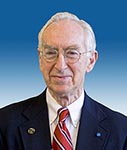 or support of a graduate student in Molecular and Cell Biology doing research with animal viruses and/or interferon research. Requirements are for a graduate student in the field of virology doing research with animal viruses and/or interferon research. Philip Marcus was born in 1927 and received his BS in Bacteriology at the University of Southern California in 1950, his MS in Microbiology at the University of Chicago in 1953 and his Ph.D. Microbiology/Biophysics in 1957 at the Colorado Medical Center where he was also an Associate Professor. Dr. Marcus then spent nine years on the faculty of the Albert Einstein College of Medicine in NY supported by a ten-year U.S. Public Health Service Research Career Development Award. In 1969 Dr. Marcus was appointed Head of the then Microbiology Section at UConn. He spent the remainder of his career at UConn where he administered the first Program Project on campus supported by the National Institute of Health, chaired the first Biosafety Committee, created a Virus and Interferon Research Laboratory recognized internationally for its innovative studies, published over 130 scientific papers, and was awarded five U.S. patents. As an early director of the Biotechnology Center, he helped attract companies with a focus on biotechnology to Connecticut. Then, for twelve years as director of the Biotechnology/ Services Center, he expanded the acquisition of state-of-the-art instruments, which drew scientists to the facility. He continued to advance biotechnology in Connecticut as a charter member of the Connecticut Academy of Science and Engineering and was pleased to know that the Research Park planned for Storrs, CT, will be realized. In 1987 he received the UConn Alumni Association Award for Excellence in Research and in 2003 was recognized as a Board of Trustees Distinguished Professor. Dr. Marcus was a member and active participant in a number of professional scientific societies including the American Society for Virology and the International Society for Interferon and Cytokine Research, which in 2005 named him as an Honorary Member. Serving eighteen years as Editor-in-Chief of the Journal of Interferon Research (later renamed the Journal of Interferon and Cytokine Research (JICR)), he went on to serve as Senior Consulting Editor of the JICR for ten years until the present day. For twenty-five years he was an Editor for the Journal of Cellular Physiology. The bulk of his research at UConn was in collaboration with long-time associate and faculty member, Dr. Margaret J. Sekellick. Three highlights included: the discovery of the world's most efficient inducer of interferon–a single molecule of double-stranded RNA; the molecular cloning of the first non-human interferon (avian); and the discovery that influenza virus populations contained previously unknown large subpopulations of noninfectious viruses that were nonetheless biologically active. Dr. Philip Irving Marcus died on September 1, 2013, at the age of eighty-six. He had spent the past forty-four years on the faculty at UConn, known to many as a compassionate professor who donated his time unselfishly to colleagues and students through his research, teaching, and service. PUCK TT, MARCUS PI. A Rapid Method for Viable Cell Titration and Clone Production With Hela Cells In Tissue Culture: The Use of X-Irradiated Cells to Supply Conditioning Factors. Proc Natl Acad Sci U S A. 1955 Jul 15;41(7):432-7. URL: PNAS JSTOR PHILIP I. MARCUS, JOHN M. NGUNJIRI, MARGARET J. SEKELLICK, LEYI WANG, CHANG-WON LEE Invitro analysis of virus particle subpopulations in candidate live-attenuated influenza vaccines distinguishes effective from ineffective vaccines Journal of Virology 84(21):10974-10981, 2010. [doi:10.1128/JVI.00502-10]
or support of a graduate student in Molecular and Cell Biology doing research with animal viruses and/or interferon research. Requirements are for a graduate student in the field of virology doing research with animal viruses and/or interferon research. Philip Marcus was born in 1927 and received his BS in Bacteriology at the University of Southern California in 1950, his MS in Microbiology at the University of Chicago in 1953 and his Ph.D. Microbiology/Biophysics in 1957 at the Colorado Medical Center where he was also an Associate Professor. Dr. Marcus then spent nine years on the faculty of the Albert Einstein College of Medicine in NY supported by a ten-year U.S. Public Health Service Research Career Development Award. In 1969 Dr. Marcus was appointed Head of the then Microbiology Section at UConn. He spent the remainder of his career at UConn where he administered the first Program Project on campus supported by the National Institute of Health, chaired the first Biosafety Committee, created a Virus and Interferon Research Laboratory recognized internationally for its innovative studies, published over 130 scientific papers, and was awarded five U.S. patents. As an early director of the Biotechnology Center, he helped attract companies with a focus on biotechnology to Connecticut. Then, for twelve years as director of the Biotechnology/ Services Center, he expanded the acquisition of state-of-the-art instruments, which drew scientists to the facility. He continued to advance biotechnology in Connecticut as a charter member of the Connecticut Academy of Science and Engineering and was pleased to know that the Research Park planned for Storrs, CT, will be realized. In 1987 he received the UConn Alumni Association Award for Excellence in Research and in 2003 was recognized as a Board of Trustees Distinguished Professor. Dr. Marcus was a member and active participant in a number of professional scientific societies including the American Society for Virology and the International Society for Interferon and Cytokine Research, which in 2005 named him as an Honorary Member. Serving eighteen years as Editor-in-Chief of the Journal of Interferon Research (later renamed the Journal of Interferon and Cytokine Research (JICR)), he went on to serve as Senior Consulting Editor of the JICR for ten years until the present day. For twenty-five years he was an Editor for the Journal of Cellular Physiology. The bulk of his research at UConn was in collaboration with long-time associate and faculty member, Dr. Margaret J. Sekellick. Three highlights included: the discovery of the world's most efficient inducer of interferon–a single molecule of double-stranded RNA; the molecular cloning of the first non-human interferon (avian); and the discovery that influenza virus populations contained previously unknown large subpopulations of noninfectious viruses that were nonetheless biologically active. Dr. Philip Irving Marcus died on September 1, 2013, at the age of eighty-six. He had spent the past forty-four years on the faculty at UConn, known to many as a compassionate professor who donated his time unselfishly to colleagues and students through his research, teaching, and service. PUCK TT, MARCUS PI. A Rapid Method for Viable Cell Titration and Clone Production With Hela Cells In Tissue Culture: The Use of X-Irradiated Cells to Supply Conditioning Factors. Proc Natl Acad Sci U S A. 1955 Jul 15;41(7):432-7. URL: PNAS JSTOR PHILIP I. MARCUS, JOHN M. NGUNJIRI, MARGARET J. SEKELLICK, LEYI WANG, CHANG-WON LEE Invitro analysis of virus particle subpopulations in candidate live-attenuated influenza vaccines distinguishes effective from ineffective vaccines Journal of Virology 84(21):10974-10981, 2010. [doi:10.1128/JVI.00502-10]
Pfizer Summer Fellowship
The prestigious Pfizer Summer Fellowship was established to provide support to a graduate student pursuing a Ph.D. 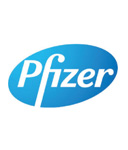 who has completed at least three years of graduate studies with a minimum GPA of 3.2 and demonstrated academic promise. Pfizer Inc. is a research-based, global biopharmaceutical company. The company applies science and their global resources to bring therapies to people that extend and significantly improve their lives through the discovery, development and manufacture of healthcare products. Their global portfolio includes medicines and vaccines, as well as many of the world’s best-known consumer healthcare products.
who has completed at least three years of graduate studies with a minimum GPA of 3.2 and demonstrated academic promise. Pfizer Inc. is a research-based, global biopharmaceutical company. The company applies science and their global resources to bring therapies to people that extend and significantly improve their lives through the discovery, development and manufacture of healthcare products. Their global portfolio includes medicines and vaccines, as well as many of the world’s best-known consumer healthcare products.
Antonio H. & Marjorie J. Romano Graduate Education Fellowship
The Romano Graduate Fellowship is awarded to a student in the Microbiology 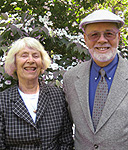 Area of Concentration who has shown exceptional promise in furthering our knowledge of microbiology and microorganisms. The gift comes through the generosity of Dr. Antonio Romano and his wife Jean who have had a long association with the microbiology program at UConn. Antonio Romano was born in Penns Grove, NJ in 1929. He received a BS (1949) and Ph.D. (1952) from Rutgers University working under the guidance of Selman Waksman, a Noble Laureate who received the Noble Prize in Medicine in 1952 for developing techniques that led to the discovery of streptomycin. Dr. Romano’s Ph.D. dissertation dealt with the antifungal antibiotic fradicin produced by Streptomyces fradiae. After graduate school, he served in the U.S. Public Health Service in Cincinnati and moved to the Univ. Cincinnati as Associate Professor in 1959 where he became Head from 1964-1966. In 1971, he became Professor of Biology in the Biological Sciences Group at UConn, and soon became Head of the Microbiology Section from 1974-1984. In 1998, he became Dean of the College of Liberal Arts and Sciences until his retirement in 1998. He was a Fellow of the American Academy of Microbiology and served on the Editorial boards of J. of Applied and Environmental Microbiology and J. Bacteriol, as well as on several grants review panels for NIH, USPHS, and NATO. Dr. Romano’s research interests were quite broad involving secondary metabolites produced by actinomycetes, sheathed bacteria (Sphaerotilus natans), and sugar transport and metabolism in a wide variety of bacteria, fungi, mammalian cells, and protozoans. He published more than 70 articles in his long career that spanned fifty years. The Department of Molecular and Cell Biology and the Microbiology graduate field of study, in particular, are fortunate to have them as supporters, and, more importantly, to have them as models of the best of what we strive to do in the academic world in supporting and training the next generation of citizens. Tony passed away in 2018 at the age of 88; Jean passed away in 2024.
Area of Concentration who has shown exceptional promise in furthering our knowledge of microbiology and microorganisms. The gift comes through the generosity of Dr. Antonio Romano and his wife Jean who have had a long association with the microbiology program at UConn. Antonio Romano was born in Penns Grove, NJ in 1929. He received a BS (1949) and Ph.D. (1952) from Rutgers University working under the guidance of Selman Waksman, a Noble Laureate who received the Noble Prize in Medicine in 1952 for developing techniques that led to the discovery of streptomycin. Dr. Romano’s Ph.D. dissertation dealt with the antifungal antibiotic fradicin produced by Streptomyces fradiae. After graduate school, he served in the U.S. Public Health Service in Cincinnati and moved to the Univ. Cincinnati as Associate Professor in 1959 where he became Head from 1964-1966. In 1971, he became Professor of Biology in the Biological Sciences Group at UConn, and soon became Head of the Microbiology Section from 1974-1984. In 1998, he became Dean of the College of Liberal Arts and Sciences until his retirement in 1998. He was a Fellow of the American Academy of Microbiology and served on the Editorial boards of J. of Applied and Environmental Microbiology and J. Bacteriol, as well as on several grants review panels for NIH, USPHS, and NATO. Dr. Romano’s research interests were quite broad involving secondary metabolites produced by actinomycetes, sheathed bacteria (Sphaerotilus natans), and sugar transport and metabolism in a wide variety of bacteria, fungi, mammalian cells, and protozoans. He published more than 70 articles in his long career that spanned fifty years. The Department of Molecular and Cell Biology and the Microbiology graduate field of study, in particular, are fortunate to have them as supporters, and, more importantly, to have them as models of the best of what we strive to do in the academic world in supporting and training the next generation of citizens. Tony passed away in 2018 at the age of 88; Jean passed away in 2024.
ROMANO, A. H., S. J. EBERHARD, S. L. DINGLE, and T. D. McDOWELL. 1970. Distribution of the Phosphoenolpyruvate: Glucose Phosphotransferase System in Bacteria DOI: 10.1128/jb.104.2.808-813.1970
JONATHAN REIZER*t, ALAN PETERKOFSKY*, AND ANTONIO H. ROMANO. 1988. Evidence for the presence of heat-stable protein (HPr) and ATP-dependent HPr kinase in heterofermentative lactobacilli lacking phosphoenolpyruvate:glycose phosphotransferase activity (phosphotransferase system/protein phosphorylation/HPr[Ser(P)J/Hpr[Ser(P)] phosphatase). Proc. Natl. Acad. Sci. USA 85:2041-2045.